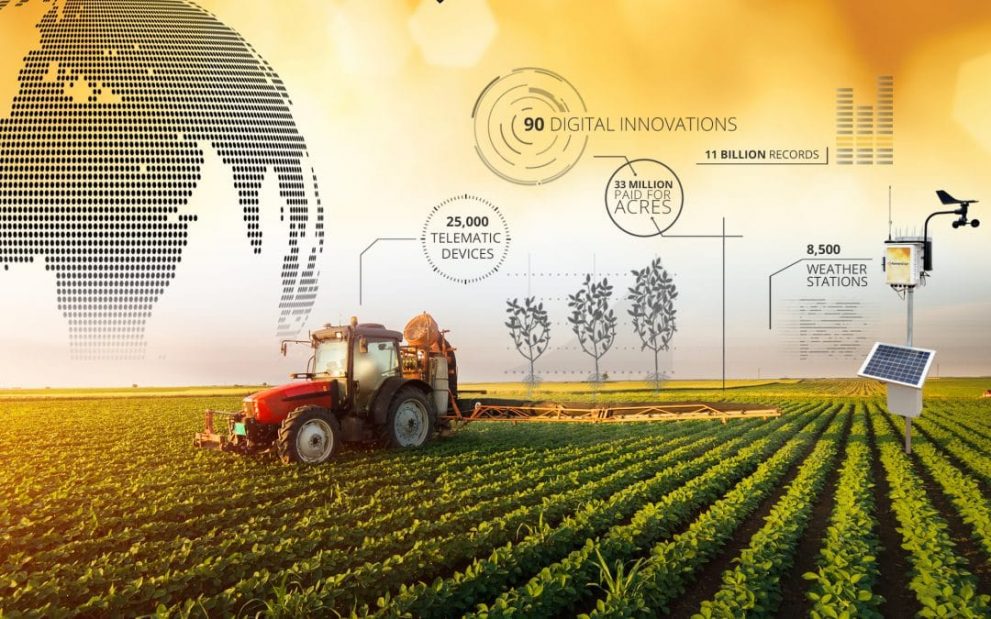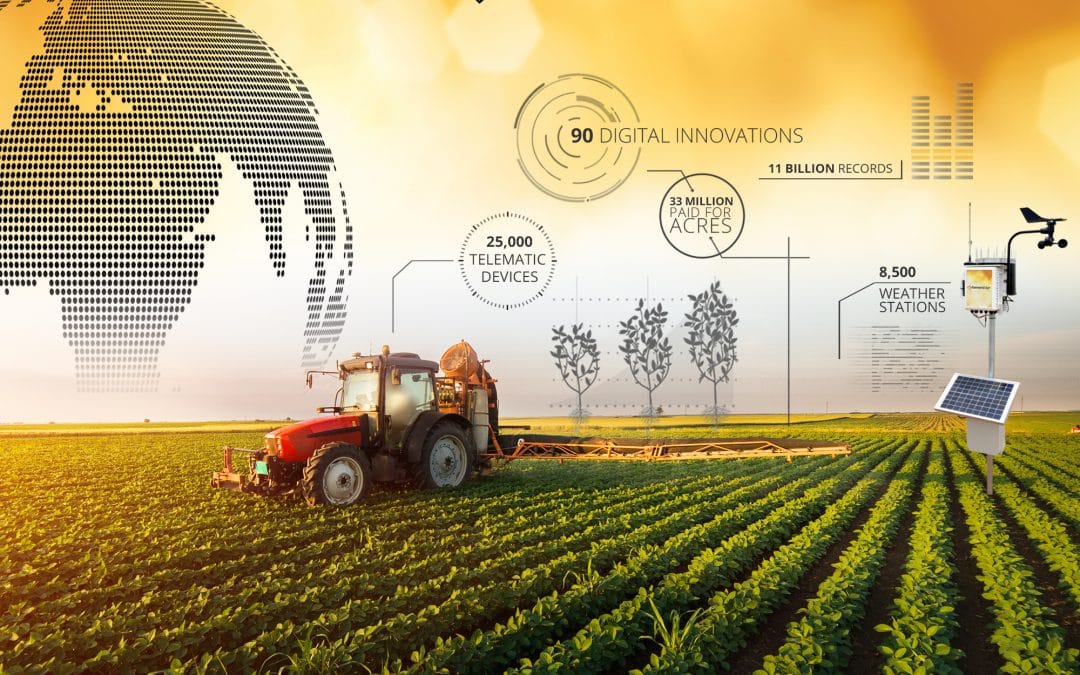
 Despite a sizeable miss in its latest quarter, Farmers Edge (Farmers Edge Stock Quote, Chart, News, Analysts, Financials TSX:FDGE) still presents a meaningful opportunity for investors, according to National Bank analyst Richard Tse, who on Tuesday delivered an update to clients on the company. Tse maintained both his “Outperform” rating and $20.00 target price for FDGE, which at the time of publication represented a projected 12-month return of 74.8 per cent.
Despite a sizeable miss in its latest quarter, Farmers Edge (Farmers Edge Stock Quote, Chart, News, Analysts, Financials TSX:FDGE) still presents a meaningful opportunity for investors, according to National Bank analyst Richard Tse, who on Tuesday delivered an update to clients on the company. Tse maintained both his “Outperform” rating and $20.00 target price for FDGE, which at the time of publication represented a projected 12-month return of 74.8 per cent.
It’s been mostly downhill for new pubco Farmers Edge since its debut in March after raising $144 million with its initial public offering. Currently, the stock is off about 44 per cent and saw a marked drop after its Q1 report on May 13.
Winnipeg-based Farmers Edge, which has a platform called FarmCommand offering services such as crop planning, soil monitoring, satellite imagery, fleet management and analytics, released first quarter 2021 financials featuring revenue up 34 per cent year-over-year to $9.9 million. The company cut their EBITDA loss in half to negative $8.4 million, while the loss per share was $0.81 compared to a loss of $2.91 per share a year earlier. FDGE ended the quarter with cash on hand of $120.4 million and long-term debt of $1.0 million.
“The IPO process took lots of energy for our team but our results show that we didn’t lose focus and were able to deliver on our key financial metrics,” said CEO Wade Barnes in a press release. “First quarter is historically a slower period for acre growth and we expect the second and third quarters to provide strong acre growth. This will enable us to meet our medium-term acre and revenue targets and strengthen our position as a global leader in digital agriculture.”
Tse said the quarter’s numbers came in “considerably below expectations, ours and consensus,” but after conducting investor meetings over two days with Barnes and CFO David Patrick, Tse came away even more convinced of Farmers Edge and its business.
“The difference in the reported [first quarter] results relative to expectations was driven by: (1) outsized allocation of revenue (Fertility Services) into Q4; (2) the timing of Analytics revenue; and, (3) FX. That explanation was reinforced across our two days of investor meetings,” Tse wrote.
“The reality is that the shortfall does reflect on execution, as we believe managing expectations is part of execution for a public company. But despite the misstep what we heard over the past few days only reinforced our investment thesis as Management pointed to incremental developments in recent months that suggests growing operating momentum,” Tse said.
“So while we can’t say with certainty the Company is entirely past those early growing pains as a public company, it appears the operational momentum is building to capture a meaningful opportunity as outlined in our recent in-depth initiation of coverage report Digitally Transforming the Farm. Based on what we learned over the past few days, FDGE continues to offer the potential for a bountiful harvest in returns looking out but with a discounted stock today,” Tse wrote.
Tse had a number of takeaways from the meetings, starting with the company’s Smart Carbon program, which aids farmers in keeping track of their per-acre carbon footprint. The program allows farmers to capture the underlying data for verification, compliance and the generation of tradable carbon credits. As Tse related, the regulatory market in Alberta, Saskatchewan and the US will be a tailwind for FDGE and the Smart Carbon program, while the company says there’s scaling interest in the market of late which has driven carbon pricing from $10 per tonne to north of $30 per tonne in recent months.
“According to Management, that translates to $6-$8 dollars per acre in which essentially covers the annual cost of Farmers Edge Smart VR package (priced at $6/acre). As such, with an estimated 5 million acres of Progressive Grower Program (PGP) trials signed in Q2 and Q3 last year, the potential full value (at $6/acre) could represent a potential annual revenue opportunity of ~$20 million,” Tse wrote.
Tse also learned that Farmers Edge’s insurance business continues to ramp up, with the company announcing in April the launch of Canola Heat Blast Yield Protection product underwritten by Munich Re. This product uses FarmCommand to provide data to farmers and insurers to support insurance claims, and Tse noted the significance of Munich Re choosing Farmers Edge for the rollout.
“Within the year, [Farmers Edge] management pointed to a potential opportunity in Brazil (an underserved market for crop insurance) for soy, as well as plans to roll out a frost protection product next year,” Tse wrote.
On the company’s Partnership channel, historically accounting for more than 90 per cent of revenue, Tse related the news that Farmers Edge is currently developing an application programming interface to work with John Deere equipment, one which would open the door to the 200-million acres of farmland using John Deere and “a material validation” of Farmers’ Edge, according to Tse.
“Bottom line, while the recent Q1 results relative to expectations were clearly a shortfall, we attribute it to growing pains as a public company at this point. Based on what we learned over the past few days, we continue to believe Farmers Edge is an early leader in the digital Ag market with one of the most comprehensive offerings that’s further differentiated by its independence,” Tse wrote.
Leave a Reply
You must be logged in to post a comment.
RELATED POSTS

National Bank Financial recently published a Technology report where it reviewed over two dozen Canadian exchange-listed tech stocks under coverage,...

Pick your spots, that’s the advice from National Bank Financial analysts Richard Tse and John Shao, who recently published a...



 Share
Share Tweet
Tweet Share
Share




Comment